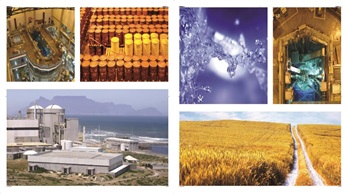The National Nuclear Regulator (NNR) is a public entity which is established and governed in terms of Section 3 of the National Nuclear Regulator Act, (Act No 47 of 1999) to provide for the protection of persons, property and the environment against nuclear damage through the establishment of safety standards and regulatory practices.
Vision
To be an independent world-class regulatory authority on nuclear safety.
Mission
To provide and maintain an effective and efficient national regulatory framework for the protection of persons, property and the environment against nuclear damage.
The NNR is responsible for granting nuclear authorisations and exercising regulatory control related to safety over the siting, design, construction, operation, manufacture of component parts, and the decontamination, decommissioning and closure of nuclear installations; and vessels propelled by nuclear power or having radioactive material on board which is capable of causing nuclear damage.
The facilities and actions regulated by the NNR are diverse and includes the operation of nuclear power reactors, research reactors, nuclear technology applications, radioactive waste management, mining and processing of radioactive ores, users of small quantities of radioactive material, transport of radioactive materials, vessels propelled by nuclear power or having radioactive material on board and to any other actions capable of causing nuclear damage to which the National Nuclear Regulator Act applies.
The NNR is primarily mandated to monitor and enforce regulatory safety standards for the achievement of safe operating conditions, prevention of nuclear accidents or mitigation of nuclear accident consequences, resulting in the protection of workers, public, property and the environment against the potential harmful effects of ionizing radiation or radioactive material.



